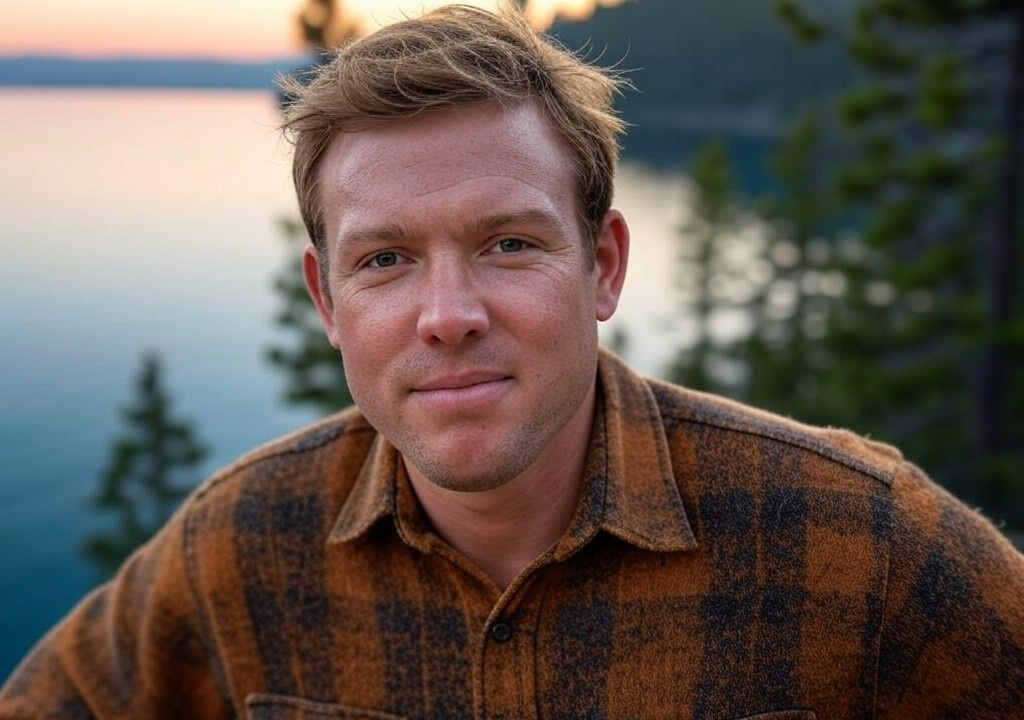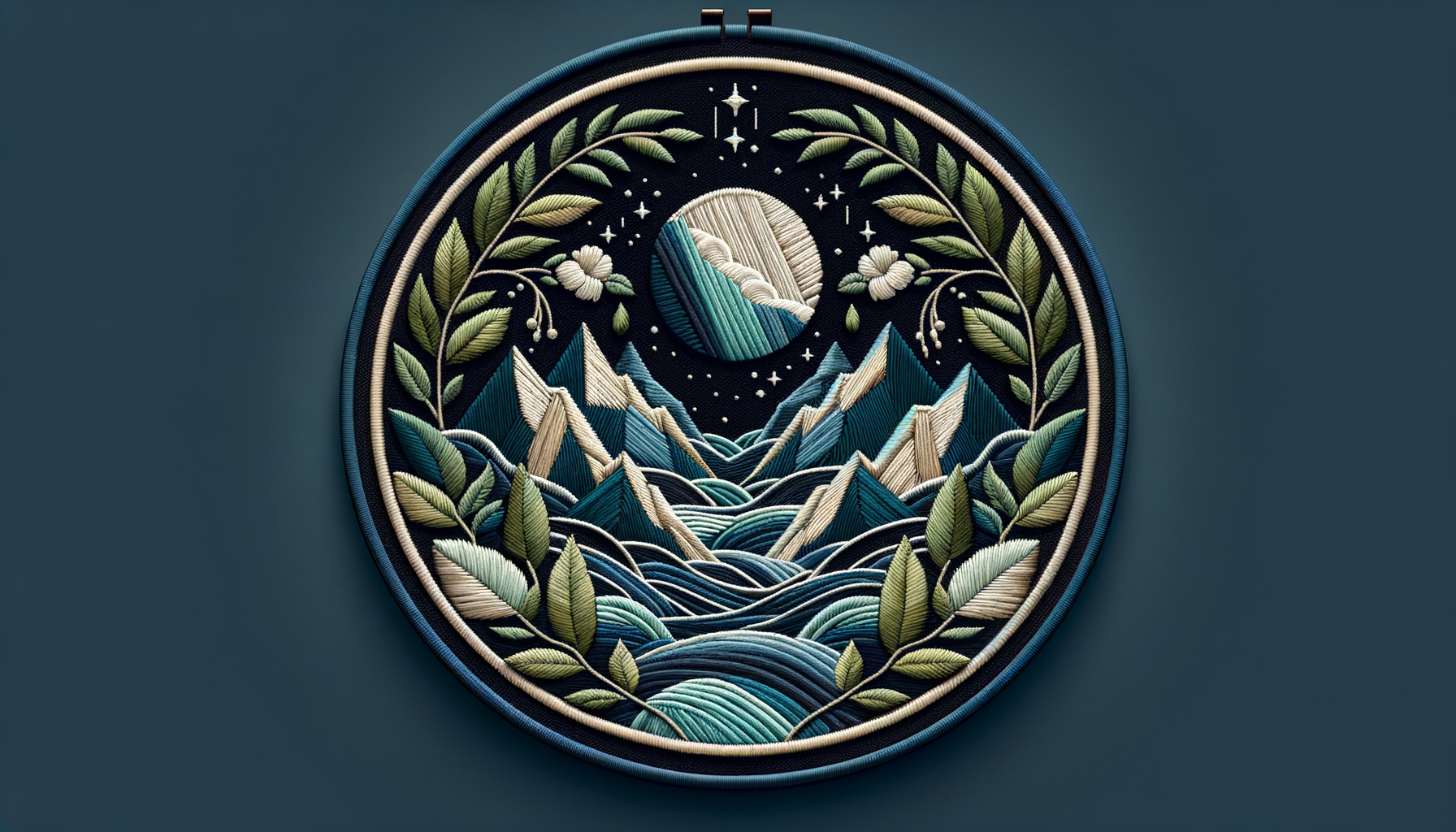What scares me the most? I could give you the textbook answer about bears in the Tahoe backcountry (a real thing we should all be concerned about, by the way) or maybe even the mildly terrifying feelings I harbor for people who don’t return their shopping carts. But the truth? What scares me most isn't so much outside of me as it is within me: vulnerability. And the reason I face it anyway… well, that’s where things get a little complicated.
For someone whose home turf is literal wilderness, you’d think “wading into the unknown” would be second nature. But here’s the thing – I can pack a bear canister, read a trail map, and predict a thunderstorm closing on the ridge. Nature has a blueprint, and I’ve had decades to decode it. Human connection? That’s different. There’s no compass for navigating matters of the heart. At least, I haven’t found one yet. But I do it anyway, over and over again, because I’ve learned the most awe-inspiring views require climbing the steepest trails.
Sound a little heavy? Don’t worry – it’s about to get lighter.
The Fear of "What If"
Here’s a fun fact: I once spent an entire week overthinking whether I should text back a woman who said I seemed “too outdoorsy.” Too outdoorsy? I live in Lake Tahoe. That’s like saying the ocean is “too wet.”
At the core, her comment flicked a nerve I’d rather not admit exists: the worry that if someone truly got to know me – the guy who can get overly poetic about pinecones and thinks campfire smoke smells better than cologne – they might decide it’s all a little too much. Vulnerability, for me, is setting that unfiltered self loose, knowing someone might just confirm my darkest what-if: "What if I’m not enough… or worse, too much?"
The irony is that, more often than not, people don’t reject you for being yourself. They appreciate it, even if it isn’t their cup of herbal tea. I mean, sure, I didn’t get a second date with "Too Outdoorsy," but maybe that saved us both from hundreds of awkward weekends in which I tried to convince her that hiking was a part of my personality, not a hobby. Rejection is rarely personal – it’s preference – and I’ve found a strange solace in knowing that.
Lesson number one? Your "what ifs" might not even be the worst-case scenario you think they are. Sometimes, they’re just the trailhead to finding someone who gets your brand of quirky.
When You Lose the Map
Just as I’ve gotten terror-stricken about vulnerability, I’ve also had to contend with the slightly scarier reality: it’s unavoidable if you want deep relationships.
Picture this: It’s 2009. I’m sitting at a lakefront café with someone I’d been seeing for a while. She brought out the big one – "Where do you see this going?" – the conversational equivalent of stepping off-trail into a dense patch of brambles. I vividly recall looking down at my coffee, realizing I had no map for answering her. I didn’t know how to express myself, but I did know that tip-toeing around her question out of fear wouldn’t bring me any closer to an answer.
So, I spoke honestly. I didn’t put a shiny spin on my hesitation or tell her what I thought she wanted to hear. I said I wasn’t sure what "forever" looked like but that I cared about her and wanted to find out. As it turns out, that didn’t scare her away. In fact, she told me my honesty was exactly what she’d been waiting to hear.
That day, I stumbled onto another truth about vulnerability: You don’t have to know where you’re headed to be open about where you are right now.
Handling the Storms
But what happens when opening up does lead to rejection? Or heartbreak? I’d love to tell you that I’ve reached some kind of Zen-like emotional fortitude where every disappointment glances off my titanium-coated soul. (Spoiler: I haven’t.) What I can tell you is that, surprisingly, relationships and mountain storms teach the same lesson: prepare for them, expect them, and don’t let them scare you away from the journey entirely.
When I face emotional fallout – whether it’s a breakup or just an unexpected argument – I think about how I’ve weathered literal storms in the mountains. Here’s my approach:
-
Check Your Gear. In emotional terms, this means leaning on your support system. Friends, family, maybe even that random work buddy who somehow always has the right Spotify playlist for your mood.
-
Seek Shelter, but Don’t Hide Forever. Yes, rest matters. You’re human. Binge-watch "Parks and Rec" for a weekend if you need to, but remember: the trail’s still waiting for you when the skies clear.
-
Know It’s Temporary. No storm, literal or emotional, lasts forever. When you’re in the thick of it, it feels endless, but time – and a little distance – has a way of clearing the clouds.
Interestingly enough, heartbreak and thunderstorms share one major upside: they make the sunny days afterward even sweeter.
Why I Do it Anyway
The truth is that I could avoid vulnerability entirely. I could wrap myself in a metaphorical Gore-Tex cocoon, stick to shallow conversations, and dodge anything remotely emotional… but what kind of life would that be? Flat. Predictable. Unremarkable.
The payoff of leaning into vulnerability is worth it every single time you muster the courage. I’ll never forget the first time I told someone I loved them and actually meant it: no hedging, no qualifiers, just those three ridiculous, humbling, terrifying words. And guess what? It didn’t just scare me – it scared her too. But the look in her eyes told me that even in her fear, my honesty inspired her. Together, we scrapped the blueprints and built something that felt more like us.
Spoiler for my own story: that relationship didn’t last forever. But the lesson did. Vulnerability isn’t a guarantee of success; it’s an invitation. You might not always get the RSVP you hoped for, but every time you extend the invite, you grow a little braver.
Your Call to Courage
If there’s one thing living in and around Lake Tahoe has taught me, it’s this: the views from the summit are only special because the climb is hard. Vulnerability is the climb. It stretches you, pushes you, makes you face the absolute worst versions of "what if"... and then it rewards you with relationships – and self-discovery – that are deep enough to feel like home.
So next time vulnerability calls your name, answer. Lean in. Tell someone how you actually feel, even if your voice cracks while you’re saying it. After all, on the other side of fear is connection, and there’s not a single mountaintop or café table in the world where I’d want to be without that.




















